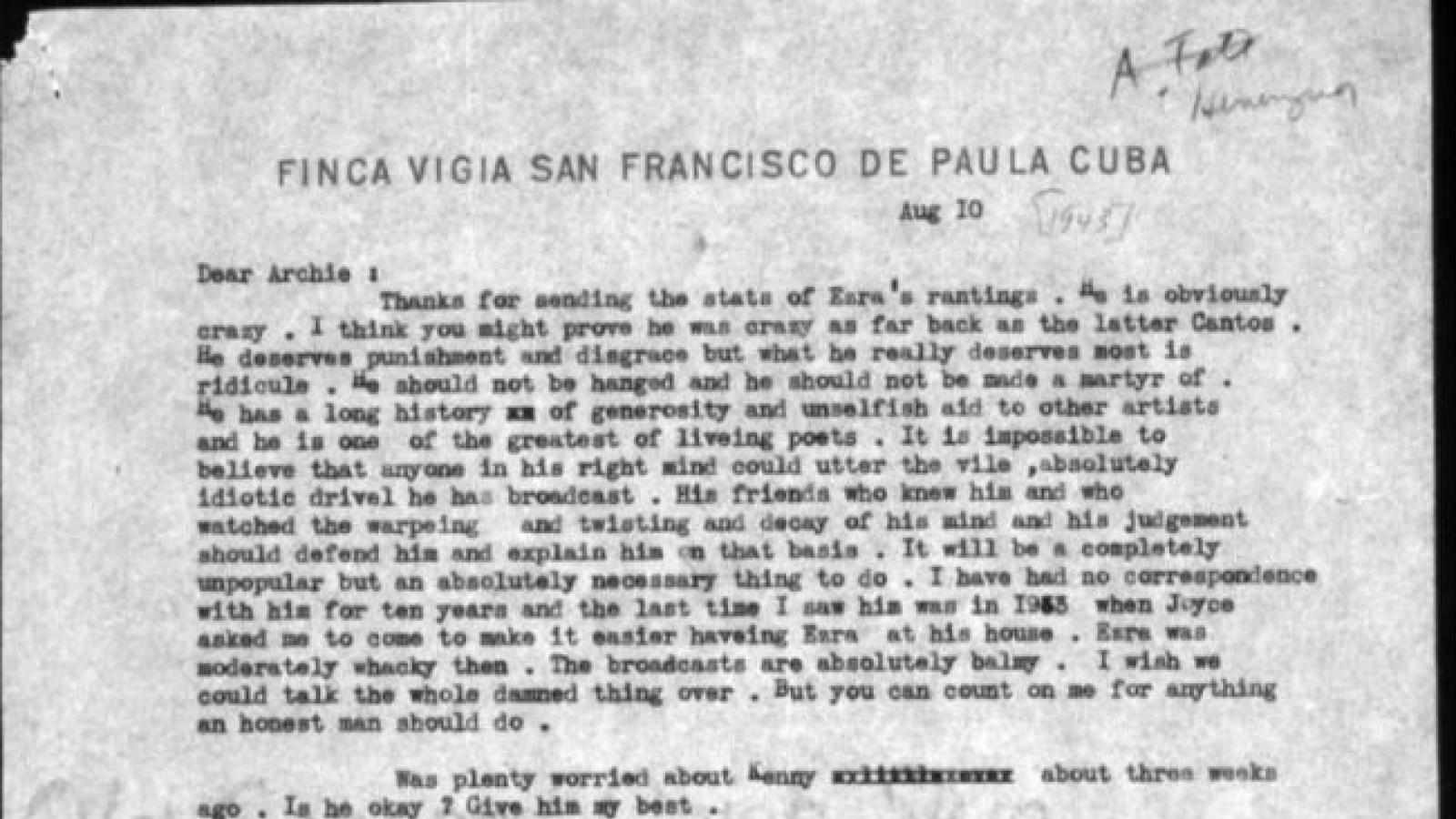Documenting Literary History

There are no shortage of treasures housed at the Library of Congress, but this one has always been a particular favorite for the way it documents a fascinating, if troubling piece of American literary history.
This incredible letter from 1942 was written by Ernest Hemingway to poet and playwright Archibald MacLeish, who at the time, was also the Librarian of Congress. The letter documents the breathtaking downward spiral of American poet Ezra Pound, who broadcast over a hundred anti-American, anti-Semitic rants over Italian radio during World War II. In the letter, Hemingway declares that Pound, now a staunch fascist, is “obviously crazy,” and is deserving of punishment, disgrace, and ridicule. However, Hemingway also believes that Pound’s literary merits, as well as his “long history of generosity and unselfish aid to other artists,” require that the cultural community come to his defense, “a completely unpopular but absolutely necessary thing to do.”
Pound was indicted for treason in absentia in 1943, and arrested by American troops in 1945. However, he was eventually declared mentally unfit for trial, and he spent 13 years at St. Elizabeth’s Hospital, a psychiatric facility in Washington, DC. Although they disagreed with his Pound’s controversial beliefs, which he firmly maintained, fellow artists continued to advocate for his release. Fresh off of winning his Nobel Prize in 1954, Hemingway told a reporter for Time magazine that “this would be a good year to release poets,” and signed a letter of support in 1957 on Pound’s behalf, pledging $1,500 in personal aid should he be released. MacLeish fought particularly hard for Pound, and eventually hired the lawyer who would successfully end Pound’s time in St. Elizabeth’s. Pound was released in 1958 and returned to Italy, where his mental and physical health suffered until his death in 1972.
Click here for more on Ernest Hemingway, one of our Big Read authors.




